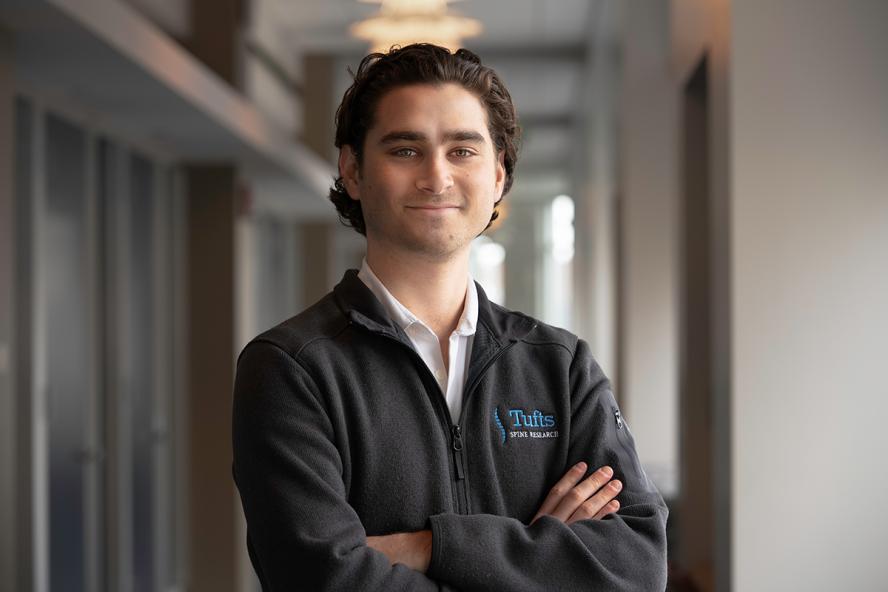-
About
- Departments & Offices
-
Academics
- Public Health
- Biomedical Sciences
- Physician Assistant
- Special Master’s (MBS)
-
Admissions & Financial Aid
- Tuition & Fees
-
Student Experience
-
- Student Resources by Program
- Academic & Student Support
- Wellness & Wellbeing
- Student Life
- Events & Traditions
-
-
Research
- Research Labs & Centers
- Tufts University-Tufts Medicine Research Enterprise
-
Local & Global Engagement
- Pathway & Enrichment Programs
- Global Health Programs
- Community Engagement
Matthew Kanter, M25
"What made Tufts exceptional was the culture of mentorship and teaching that permeated the clinical environment. It is because of their mentorship that I feel prepared to continue my training in neurosurgery.”

What inspired you to pursue your degree, and how has your personal journey shaped your career goals?
I didn’t grow up around medicine, but I’ve always been drawn to the idea of dedicating myself to something larger than myself. Early in my career, I worked at a healthcare services startup and saw firsthand how disconnected many physicians were from decisions that shape patient care.
The coursework for my MD/MBA program further motivated me to not only care for patients at the bedside, but also to advocate for clinicians and improve the systems we work within. My goal is to use both my clinical training and business background to help physicians reclaim a seat at the table—and ultimately improve outcomes for both patients and providers.
How have your experiences at Tufts prepared you for your future career?
Medical school is challenging by design—long hours, steep learning curves, and being at the earliest stage of training. But what made Tufts exceptional was the culture of mentorship and teaching that permeated the clinical environment. I’ve come to appreciate just how rare that is.
Our residents and attendings go out of their way to invest in students, to make space for our growth while guiding us through some of the hardest moments in training. That generosity of time and spirit shaped me profoundly. It is because of their mentorship that I feel prepared to continue my training in neurosurgery.
If you could go back to before you started at Tufts and give yourself one piece of advice, what would it be?
Just appreciate the moment. There will never be another time in your life after medical school where you can focus so fully on your own learning and growth. Take advantage of the time and flexibility to explore the world of healthcare beyond clinical medicine. Medicine isn’t just about treating disease—it’s about leadership, advocacy, innovation, and discovery. Follow your curiosities and build skills that excite you, even if they fall outside a traditional path. The opportunity to do so becomes meaningfully narrower later. Don’t waste it.
What advice would you offer to prospective students based on your own experience?
1. Don’t take a passive role in your education. Take initiative in your learning and seek out opportunities. No one will tell you exactly how to learn or what path to take—it’s up to you to shape your experience.
2. While medicine can be daunting, you’ll find that people are more willing to help than you think. Learn to ask the right questions to the right people. You never know who might change your career trajectory.
3. No experience, including failure, is a waste if you can find a way to learn from it. Passion, persistence, and work ethic matter just as much as intelligence or skill. Stay grounded in why you started and let that carry you forward.
How have your research interests developed during your degree, and what impact do you aim to make in your field?
Throughout medical school, I’ve sought to integrate my personal and clinical experiences into my research. By focusing primarily on identifying barriers to the adoption of new surgical innovations, I’ve gained valuable insight into how novel techniques are validated, refined, and ultimately integrated into clinical practice. I hope my work not only helps accelerate the adoption of beneficial technologies but also lays a foundation for future investigations that improve surgical outcomes and the delivery of care.